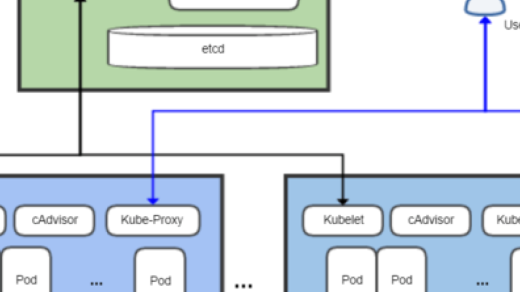Welcome to the world of Linux administration! In this article, we will explore the essential skills and knowledge needed to become a proficient Linux administrator.
Course Overview and Description

The Linux Administrator Course provides a comprehensive overview of essential skills needed to manage Linux systems effectively. Students will learn about system administration tasks, package management, shell scripting, troubleshooting techniques, security measures, and more.
Throughout the course, students will gain hands-on experience with popular Linux distributions such as Red Hat Enterprise Linux and Ubuntu. They will also become familiar with tools like systemd, OpenSSH, DNF, and Bash to efficiently manage systems and services.
By the end of the course, participants will be equipped with the knowledge and practical skills needed to work as a Linux system administrator in a variety of environments, including enterprise settings. The training will cover a range of topics from basic system configuration to advanced networking and security concepts.
Whether you are new to Linux or looking to deepen your expertise, this course is designed to help you succeed in managing Linux systems effectively. With a focus on practical skills and real-world scenarios, students will be well-prepared to tackle the challenges of modern IT environments.
Technology Considerations and Impact
When considering a Linux administrator course, it’s essential to understand the technology impact and considerations involved. Linux is an open-source operating system that relies on a shell for interacting with the system. Understanding package managers like DNF and software repositories is crucial for managing applications efficiently.
Systemd plays a vital role in managing services and processes on a Linux distribution, while OpenSSH provides secure remote access for server administration. Cloud computing is a key component in modern IT infrastructure, and Linux skills are highly valued in this field.
Linux administrators must be proficient with the command-line interface, file systems, and computer security practices. Experience with text editors like Vim or Nano is beneficial for editing configuration files. Troubleshooting skills are essential for resolving issues that may arise in a Linux environment.
By taking a Linux administrator course, individuals can gain the knowledge and skills needed to excel in a career as a system administrator. Linux Foundation offers reputable courses that cover a wide range of topics, from basic system administration tasks to advanced networking and security concepts. With the increasing demand for Linux professionals in the IT industry, investing in Linux training can open up a world of opportunities for career growth and advancement.
Course Content and Modules
| Module | Description |
|---|---|
| Introduction to Linux | An overview of Linux operating system, its history and basic concepts. |
| Linux Installation | Guidance on installing Linux distributions on different systems. |
| File System Management | Understanding and managing the file system structure in Linux. |
| User and Group Management | Creating, deleting and managing users and groups in Linux. |
| Networking in Linux | Configuring network settings and services in Linux. |
| Security and Permissions | Implementing security measures and managing file permissions in Linux. |
| Shell Scripting | Writing and executing shell scripts for automation and system tasks. |
Instructors and Ratings
The LinuxAdministratorCourse instructors are highly experienced professionals in the field of Linux administration, with expertise in various Linux distributions such as Red Hat and Ubuntu. They bring real-world experience to the classroom, providing practical insights and hands-on training that students can immediately apply in their careers.
Course ratings from past students reflect the high quality of instruction and the effectiveness of the course material in preparing individuals for Linux administration roles. Students have praised the instructors’ ability to explain complex concepts in a clear and understandable manner, as well as the interactive nature of the course content that enhances learning.
By enrolling in the LinuxAdministratorCourse, students can expect to gain a solid foundation in Linux administration, covering essential topics such as shell commands, package management, network configuration, and security best practices. The instructors guide students through both theoretical concepts and practical exercises, ensuring a comprehensive learning experience.
Whether you are looking to enhance your existing Linux skills or are completely new to the world of Linux administration, the LinuxAdministratorCourse provides a structured learning path that caters to individuals at all levels of expertise. With a focus on practical skills and real-world applications, this course equips students with the knowledge and confidence needed to succeed in the field of Linux administration.



